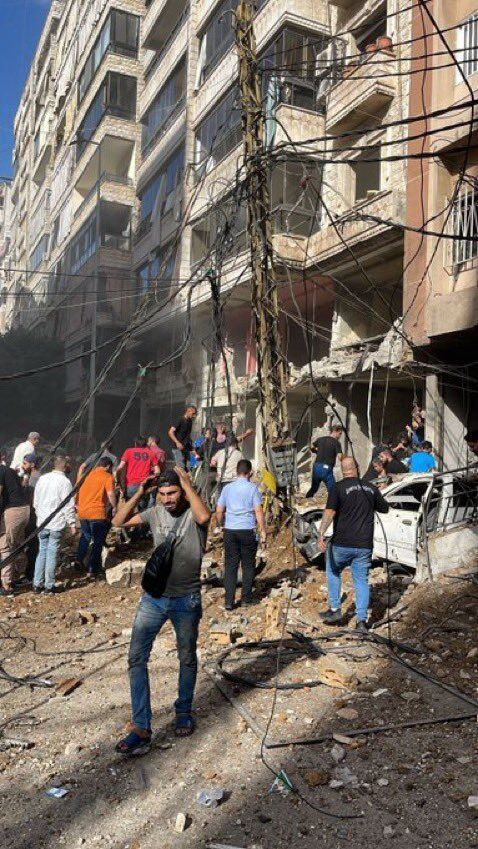
By Maher Abu Tair
Israeli security breaches are not new. We used to hear about the assassination of Palestinian leaders through the explosion of a mobile phone, said every time to be stuffed with explosives activated suddenly but this is unlikely, because those leaders do not receive mobile devices from anyone with such naivety.
Most likely however, is that there is software that leads to heating up of the batteries of these devices and turns them into explosives: So the bomb is now in the hand of the fighter and his pocket, and the same bomb is filming, eavesdropping and spying in the new era of electronic wars.
Today there is all possibilities as Israel is penetrating beyond Lebanon, into all countries of the region, through human and electronic penetrations and software. The recent strike on Lebanon go beyond that country, reaching all in the region to seek to make Israel “gigantic” and restore its reputation, by saying it has the ability to blow up our mobile phones and even TVs connected to the Internet to burn your homes, and disrupt all services from water to electricity, to banks software, ATMs, and airports whilst disrupting military and civil devices and others.
This is the telegram Israel wants to send to the mail of the region and its people, to prove it is penetrating many countries, and is preparing for any emergency by continuously monitoring every movement in the countries neighboring Palestine.
Telegram of Intimidation
This telegram of intimidation wants to say, you must know your size, your area, and the capabilities of those in front of you on the technical, military, economic, and political levels, so that you do not meet the same fate.
Intimidation however will not work and change the reality. We already all know there are scientific, technological and military differences, and these differences have not eliminated hostilities, nor will they force any people to surrender, especially since these wars are now managed from a distance.
Their pattern is painful. There is no better evidence of that than Israel’s technical and intelligence failure to monitor the 7 October attack, and their failure to track missiles, and failure in many security operations, including reaching the prisoners, or specific names in Palestine, Lebanon, and other countries.
So many do not invest in the intimdation story that says that Israel can never be confronted in this region.
But Israel does not want war with Lebanon, because although it has killed and wounded thousands of Lebanese, it realizes missile wars are very costly, more so than a ground war, which Israel is avoiding because it will be playing in a different arena and exposed to great losses.
Despite this, Israel is trying to invest in cautious calculations in Lebanon working on the assumption that Lebanon does not want to be dragged into an open war, but this conviction may not last long. In the face of embarrassments, Israel has caused the Lebanese may find themselves at some point, obliged to respond to the technological warfare strikes.
The most dangerous being leaked by the Israeli media is the focus on the motives of the recent Israeli telecom strikes to force Lebanon to pressure the Gaza resistance to handover the prisoners and stop the war, and here Israel is accusing the Palestinian resistance of receiving orders from Hezbollah, and Hezbollah wants the war to continue in Gaza, so that Israel is preoccupied with the Palestinians away from Iran’s camp and its groups, an accusation aiming to connect the arenas and link the regional scene.
The regional war, whose rhythm was controlled in the past few months, has lost its rhythm, and has exceeded the limits drawn for it, stating the entire region now faces an open scenario if the Israeli strikes continue, and if the Lebanese reactions change, especially since all the continuing battles have not yet led to a political settlement, and we are still in the stage of exchanging punches till now!
This article is translated from Arabic on the Albaladnews website.






